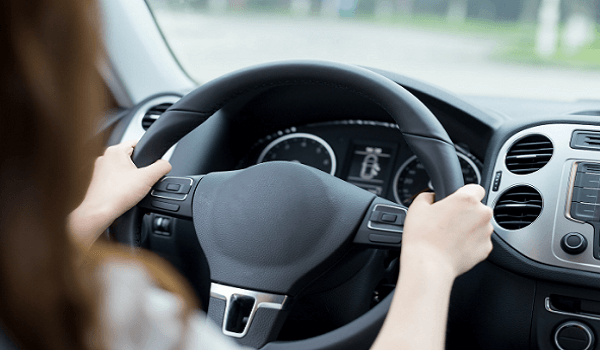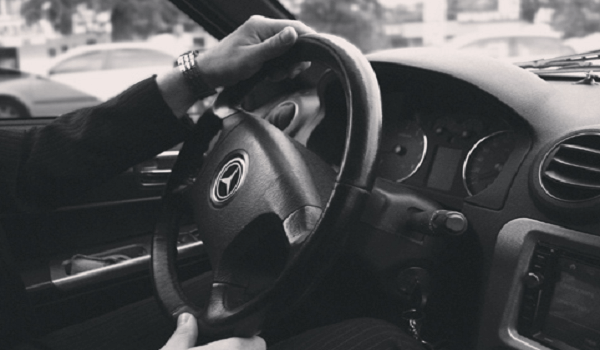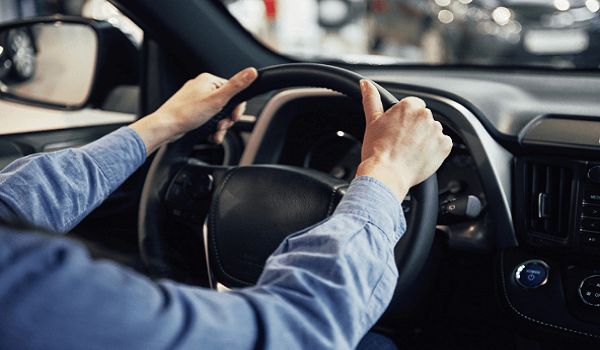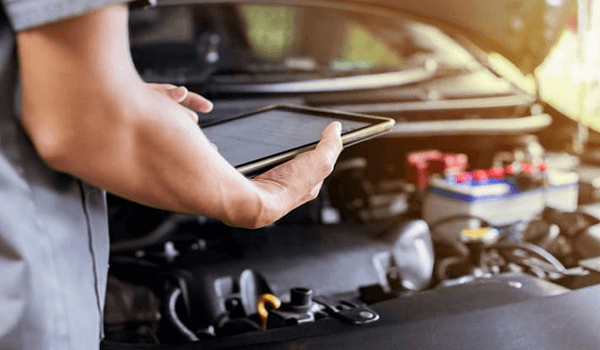Car Shakes At Idle But Smooths Out While Driving – When your car is idling, you expect it to run smoothly and quietly. However, if you notice that your car is shaking or vibrating when stopped, it can be concerning.
The good news is that most of the time, a car that shakes at idle but smooths out while driving can be fixed.
If you’ve ever been sitting at a stoplight or in a drive-thru line and noticed your car vibrating or shaking, you’re not alone.
A rough idle is a common problem that can affect all types of vehicles, from economy cars to luxury sedans. While it may not seem like a big deal at first, a car that shakes at idle can be a sign of underlying mechanical problems that can become more serious if left unchecked.
In this article, we’ll explore the reasons why a car might shake when idling and how to diagnose and fix the problem.
We’ll also look at why the vibration typically smooths out when driving and what to do if you notice any other symptoms, such as a check engine light or problems accelerating.
By understanding the causes of a rough idle and taking appropriate action, you can keep your car running smoothly and safely on the road.
Is It Normal for A Car to Shake When Idle?
Before we dive into the reasons why a car might shake at idle, it’s important to understand what “normal” idling looks and feels like.

Depending on the make and model of your car, the idle RPM (revolutions per minute) should fall within a certain range, typically between 600 and 1000 RPM. You should also expect the engine to run smoothly and quietly, with no vibrations or shudders.
It’s important to note that some engines, such as those in high-performance cars or trucks, may have a slightly rougher idle as part of their normal operation.
Additionally, if your car has been sitting for an extended period of time, it may take a minute or two for the engine to settle into a smooth idle.
However, if you notice sustained shaking or vibration when the engine is idling, it’s likely that there’s an underlying issue that needs to be addressed.
Reasons Your Car Idles Rough But Drives Smooth

There are many potential causes of a car that shakes at idle but smooths out while driving. Here are some of the most common reasons why your car might be idling rough:
- Loose gas cap: A loose gas cap can cause fuel vapors to leak out, which can affect the fuel-to-air ratio and cause the engine to run poorly.
- Worn throttle position sensor: The throttle position sensor measures the position of the throttle, and if it’s worn or faulty, it can cause the engine to run rough.
- Bad or faulty idle air control valve: The idle air control valve regulates the air intake when the throttle is closed, and if it’s not working properly, it can cause the engine to idle poorly.
- Faulty fuel pressure regulator/ignition control module: These components regulate the fuel pressure and ignition timing, respectively, and if they’re not functioning correctly, they can cause rough idling.
- Oxygen sensor: The oxygen sensor measures the oxygen content in the exhaust and adjusts the fuel-to-air ratio accordingly. A faulty oxygen sensor can cause the engine to run poorly.
- Dirty throttle body or sensor: Dirt and debris can accumulate in the throttle body or on the throttle position sensor, causing the engine to idle roughly.
- Loose battery cables: Loose battery cables can cause electrical issues that can affect the engine’s performance, including rough idling.
- Camshaft timing chain: If the timing chain is worn or damaged, it can cause the engine to run rough, especially at idle.
Why Does My Car Shake When Idle But Not When Driving?

It’s not uncommon for a car to shake or vibrate at idle but smooth out while driving. This is because the engine and transmission work together differently when the car is stopped versus when it’s in motion.
When the car is idling, the engine is responsible for keeping the car running, but when it’s in motion, the transmission takes over and the engine doesn’t have to work as hard.
Additionally, driving at a constant speed can help smooth out any roughness that might be present when the car is idling.
Potential causes of shaking at idle but not while driving include:
- Engine mounts: If the engine mounts are worn or damaged, the engine may vibrate excessively when idling but not when driving because the motion of the car helps to stabilize the engine.
- AC compressor: When the AC is turned on, it puts extra load on the engine, which can cause it to vibrate more at idle. However, when you’re driving, the airflow helps to cool the engine and reduce the load on the AC system, resulting in smoother operation.
- Transmission issues: If the transmission is slipping or not functioning properly, it can cause the engine to vibrate excessively at idle.
However, when you’re driving, the transmission is engaged and working properly, which can help smooth out the engine’s operation.
What Causes A Car to Vibrate When Idling?

Vibrations at idle can be caused by a number of factors, including:
- Engine misfires: A misfiring engine can cause the car to vibrate or shake at idle. This is often due to a problem with the ignition system, such as a bad spark plug or ignition coil.
- Imbalanced or damaged engine components: Worn or damaged engine components, such as pistons, rods, or crankshafts, can cause the engine to vibrate excessively at idle.
- Fuel system issues: Fuel delivery issues, such as a clogged fuel filter or fuel pump that’s not delivering enough fuel, can cause the engine to run rough at idle.
- Vacuum leaks: A vacuum leak can cause the engine to run lean, which can cause vibrations at idle.
- Electrical issues: Electrical problems, such as a faulty alternator or battery, can cause the engine to vibrate or shake at idle.
Why Is My Car Idling Weird But Drives Fine?
If your car is idling strangely but seems to drive normally, it could be due to a number of factors, including:
- Temperature changes: If the weather is very hot or cold, it can affect the way your car idles. This is because the engine needs to adjust to changes in temperature and humidity.
- Transmission issues: If the transmission is slipping or not shifting properly, it can cause the car to shake or vibrate at idle but drive normally.
- Fuel system issues: Fuel delivery issues, such as a clogged fuel filter or fuel pump that’s not delivering enough fuel, can cause the engine to run rough at idle but drive normally.
- Electrical issues: Electrical problems, such as a faulty alternator or battery, can cause the engine to vibrate or shake at idle but drive normally.
What are the symptoms of a failing idle air control valve?
The idle air control valve is an important component in the engine’s air intake system, and if it fails, it can cause the engine to idle roughly or stall. Here are some common symptoms of a failing idle air control valve:
- Rough or fluctuating idle: If the idle air control valve is not functioning correctly, it can cause the engine to idle roughly or fluctuate between high and low RPMs.
- Stalling: A failing idle air control valve can cause the engine to stall when the car is stopped or when the throttle is released.
- Check engine light: A failing idle air control valve can trigger the check engine light to come on.
What Can Cause A Car to Idle Weird?
As we’ve discussed, there are many potential causes of rough or weird idling. In addition to the issues we’ve already covered, other potential causes include:
- Dirty air filter: A dirty air filter can restrict the flow of air to the engine, causing it to idle roughly or stall.
- Dirty or faulty mass airflow sensor: The mass airflow sensor measures the amount of air entering the engine and adjusts the fuel-to-air ratio accordingly. A dirty or faulty sensor can cause the engine to idle roughly or stall.
- Worn-out spark plugs: Worn-out or dirty spark plugs can cause misfires and rough idling.
- Vacuum leaks: A vacuum leak can cause the engine to run lean, which can cause rough idling.
- Faulty sensors: A faulty sensor, such as the oxygen sensor or throttle position sensor, can cause the engine to idle poorly.
- Clogged fuel injectors: Clogged fuel injectors can cause a lack of fuel to the engine, leading to rough idling.
What Causes Idling to Go Up and Down?
If the engine’s idle speed is fluctuating between high and low RPMs, it could be due to a number of factors, including:
- Vacuum leaks: A vacuum leak can cause the engine to run lean, which can cause fluctuations in idle speed.
- Dirty or faulty mass airflow sensor: The mass airflow sensor measures the amount of air entering the engine and adjusts the fuel-to-air ratio accordingly. A dirty or faulty sensor can cause fluctuations in idle speed.
- Faulty idle air control valve: The idle air control valve controls the engine’s idle speed. A faulty valve can cause fluctuations in idle speed.
- Worn or dirty spark plugs: Worn or dirty spark plugs can cause misfires, which can lead to fluctuations in idle speed.
- Fuel delivery issues: Fuel delivery issues, such as a clogged fuel filter or faulty fuel pump, can cause fluctuations in idle speed.
How Do You Fix An Erratic Idle?

Fixing an erratic idle can be tricky, as it can be caused by a number of different issues. Here are some potential fixes:
- Clean or replace the air filter: A dirty air filter can restrict airflow to the engine, causing rough idling.
- Clean or replace the mass airflow sensor: A dirty or faulty mass airflow sensor can cause the engine to idle poorly.
- Replace the idle air control valve: If the idle air control valve is faulty, it may need to be replaced.
- Check for vacuum leaks: A vacuum leak can cause the engine to run lean, leading to rough idling. Check for any cracked or damaged hoses, and replace them as needed.
- Replace worn spark plugs: Worn or dirty spark plugs can cause misfires and rough idling. Replace with new plugs as needed.
- Check the fuel delivery system: Fuel delivery issues, such as a clogged fuel filter or faulty fuel pump, can cause rough idling. Check and replace components as needed.
How to Fix Car Vibration

If your car is vibrating at idle or while driving, there are a few potential fixes:
- Balance the tires: If the tires are unbalanced, they can cause vibrations at certain speeds. Have the tires balanced to see if this resolves the issue?
- Replace worn suspension components: Worn or damaged suspension components, such as shocks, struts, or control arms, can cause vibrations while driving.
- Check the drivetrain: A damaged or worn driveshaft, CV joint, or universal joint can cause vibrations while driving.
- Check the engine: A misfiring engine or worn engine components can cause vibrations at idle and while driving.
Is it Safe to Drive A Car With Rough Idle?
If your car has a rough idle, it’s generally safe to drive in the short term. However, a rough idle can be a sign of a larger issue, and if left unchecked, it can cause further damage to the engine or other components. It’s best to have your car inspected by a mechanic as soon as possible to diagnose and fix any underlying issues.
Summary: Car Shakes At Idle But Smooths Out While Driving
In conclusion, if your car is shaking at idle but smooths out while driving, there are a number of potential causes, including issues with the fuel delivery system, ignition system, or engine sensors.
Common causes of rough idling include a faulty idle air control valve, worn spark plugs, vacuum leaks, and clogged fuel injectors.
If your car is vibrating at idle or while driving, there are a few potential fixes, including balancing the tires, replacing worn suspension components, and checking the engine and drivetrain.
While it’s generally safe to drive a car with a rough idle in the short term, it’s important to have your car inspected by a mechanic as soon as possible to diagnose and fix any underlying issues.
By taking proper care of your car and addressing any issues promptly, you can ensure that it runs smoothly and safely for years to come.
Related:
- Why is Driving A Car Important?
- What Happens If You Drive on Low Transmission Fluid
- What Happens If You Drive On A Flat Tire?
- Can You Practice Driving Without A Permit?